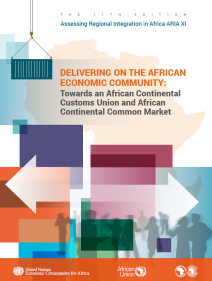The African Continental Free Trade Area (AfCFTA) is a major milestone in Africa’s regional integration journey towards establishing the African Economic Community. It embodies the collective vision of African countries to unite the continent’s 1.4 billion population and combined gross domestic product (GDP) of approximately $3 trillion in a single continental market. As of September 2024, the AfCFTA Agreement had garnered 54 signatories and 48 ratifications, accompanied by concrete steps such as the establishment of the AfCFTA Secretariat; the launch of the Guided Trade Initiative; and the adoption of key protocols on investment, intellectual property rights and competition policy. Unprecedented political will and commitment from African leaders and other stakeholders in the AfCFTA signal strong prospects for its successful implementation, as well as its transformative potential.
As implementation progresses, reflections on its consolidation and subsequent progression to the next phases in Africa’s integration are imperative, especially given the fast-changing and increasingly complicated global environment, demanding Africa’s deeper internal integration and its ability to speak and act with one, strong voice. The United Nations Economic Commission for Africa (ECA), African Union Commission (AUC) and African Development Bank (AfDB) made a deliberate choice to focus this 11th edition of their joint flagship publication, Assessing Regional Integration—ARIA XI—on the theme “Delivering on the African Economic Community: Towards an African Continental Customs Union and African Continental Common Market.”

